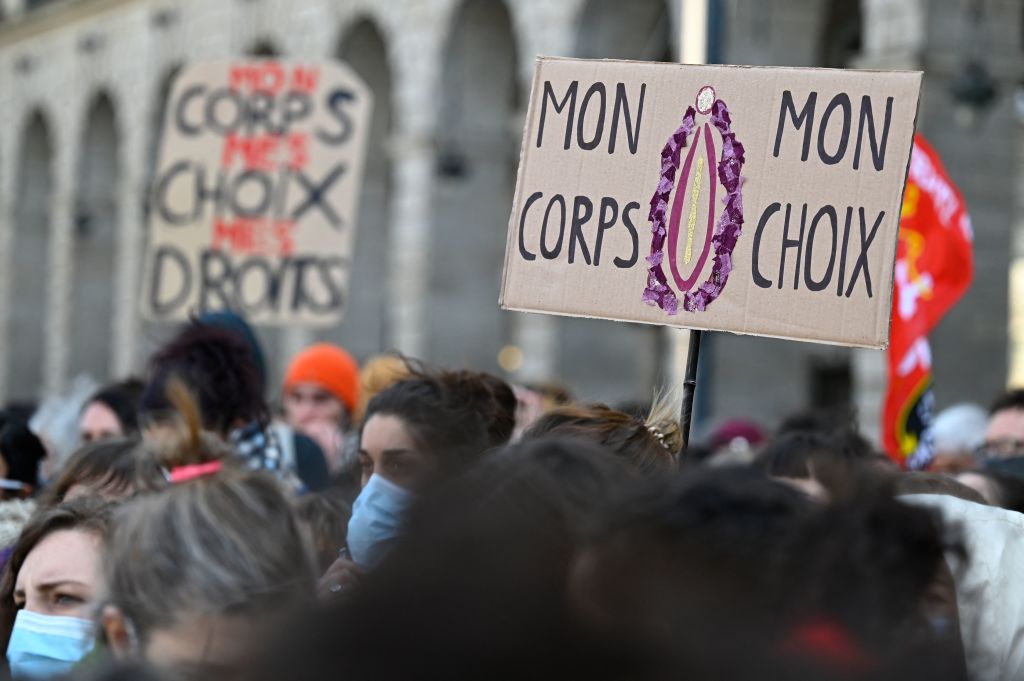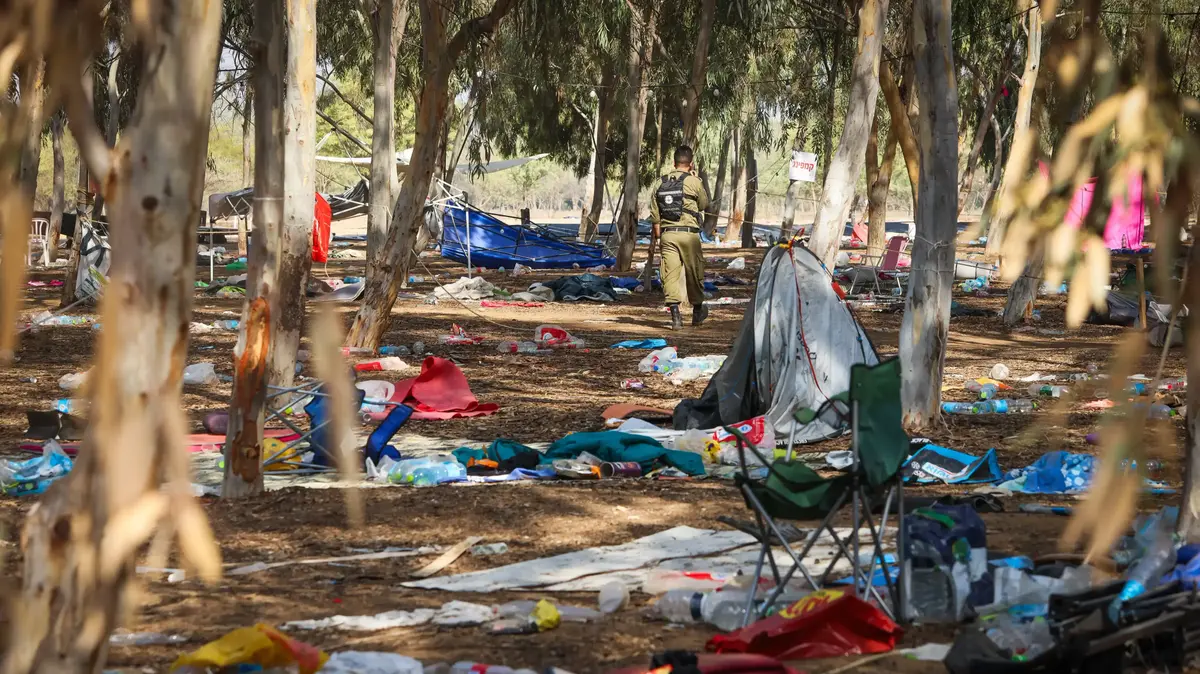UN says current recession is 'elcession' 2:03
(CNN Spanish) -
«My body belongs to me».
The new report of the United Nations Population Fund (UNFPA) claims the right to autonomy of women over their own body, but the findings on the levels of self-determination of women in the world are shocking.
How many women and girls can freely claim that their bodies belong to them? Asks UNFPA, which is the United Nations agency in charge of sexual and reproductive health.
“Millions of people are denied their right to say 'no' to sex, to choose who to marry, or to have children when they see fit.
Many are denied this right because of their race, sex, sexual orientation, age or ability, ”the report says.
And as Dr. Natalia Kanem, United Nations Under-Secretary-General and UNFPA Executive Director, writes, the report “reveals many gaps in bodily autonomy;
many of them have worsened due to pressure from the covid-19 pandemic.
Right now, for example, the number of women and girls exposed to gender-based violence and harmful practices such as early marriage is reaching unprecedented levels.
Furthermore, "it is estimated that only 13% of the countries have a budget reserved for the collection and analysis of gender statistics."
Women have on average only 75% of men's legal rights
"'Women have no limits," says a protester at the march for Women's Day in Santiago, Chile in March 2021. (Photo: MARTIN BERNETTI / AFP via Getty Images)
According to the Secretary-General of the United Nations in 2020, and as the UNFPA report says, “despite the fact that in many countries there are constitutional guarantees regarding gender equality, at the global level women have, on average, only 75% of the legal rights of men.
advertising
"In many cases, women and girls lack the power to challenge these disparities because their degree of participation in political decisions and other forms of decision-making is still low," explains UNFPA.
Only half of adolescents and women can make their own decisions regarding body autonomy
The UNFPA report presents the information obtained to date in 57 countries on indicator 5.6.1 of the Sustainable Development Goals (SDGs) for 2030. Most of these countries are in Sub-Saharan Africa.
“Although the data currently covers only 1 in 4 countries in the world, they show an alarming picture of the state of bodily autonomy of millions of women and girls: only 55% of them can make their own decisions in the three dimensions of autonomy body, ”says UNFPA.
In other words, 1 in 2 women and girls can decide if they want sexual and reproductive health care, if they want to use contraception, or if they want to have sex with their partner.
And the percentage varies by region.
"While 76% of adolescent girls and women in East and South-East Asia and Latin America and the Caribbean make autonomous decisions [about their bodies], this figure is less than 50% in Sub-Saharan Africa and Central and South Asia." says the report.
However, in Mali, Niger and Senegal, the percentage of women who can make autonomous decisions "is less than 10%".
Furthermore, according to UNFPA, in the last 10 years, "the power of women to oppose sexual relations has decreased by 20%."
217 million women are still unable to meet their contraception needs
"My body, my choice", a Women's Day march in Rennes, France, in March 2021. (Photo: DAMIEN MEYER / AFP via Getty Images)
"While modern contraceptive use has more than doubled since 1994, 217 million women around the world are still unable to meet their contraceptive needs," says UNFPA.
In addition, the report highlights the fact that "quantitative surveys indicate that between 4% and 29% of women who use contraception do so without their husbands or partners knowing."
"Although the covert use of contraceptives is an individual choice, women generally describe this experience as negative and disempowering," explains UNFPA.
Educational level is a key factor in bodily autonomy
"A woman with a lower level of education than her husband or partner is more likely to suffer sexual violence than a woman whose educational level is more or less the same as that of her husband," the report says.
For their part, girls and women in the bottom two wealth quintiles are more likely to have had unwanted sex.
"No to female sexual mutilation" and "Stop violence against women" say T-shirts worn in Marseille, France, on March 8, 2021. (Photo: NICOLAS TUCAT / AFP via Getty Images)
4 million girls at risk of female genital mutilation
"In 2020, 4 million girls were still at risk of being subjected to female genital mutilation," the report says.
Currently, some 200 million women and girls live with the consequences of genital mutilation.
UNFPA estimates that the COVID-19 pandemic "may result in 2 million cases of female genital mutilation that would have otherwise been prevented."
"When will women be safe ?! says a banner in London on March 14, 2021. The one on the right crosses out the phrase" Protect your daughter "and corrects it with" Educate your son! "
(Photo: Hollie Adams / Getty Images)
Violence against girls and young people with disabilities
According to UNFPA, girls and young women with disabilities "are more likely to experience violence than any of their male counterparts with disabilities or than girls and young women without disabilities."
"Girls and boys with disabilities are almost three times more likely to experience sexual violence, and girls are the ones most at risk," the report says.
"Not one less".
March of «Las Catrinas CDMX 2020» against femicide in November 2020 in Mexico City.
(Photo: CLAUDIO CRUZ / AFP via Getty Images)
Assassinations for insufficient dowries and "honor" killings
As UNFPA explains, "child marriage is a form of gender-based violence" and "is an enormous limitation of the decision-making capacity of women and girls, since it forces them to maintain relationships of subordination for life" .
According to the most recent estimates by UNFPA and UNICEF, "there are 650 million women alive who were married before the age of 18, and each year another 12 million girls were married before reaching adulthood."
In some countries, in addition to child marriage, the practice of dowry is also used, whereby the bride's family pays the groom in money or in kind to marry her.
UNFPA explains that this practice "directly or indirectly oppresses women" and "encourages child marriage, as families pay smaller dues for younger brides."
In addition, it can lead to violence: “In India alone, about 8,000 killings are recorded each year due to insufficient skills, in which women are killed because families do not receive the expected amount, according to the National Statistics Office of [India] crime, "says the UNFPA report.
On the other hand, the report also exposes "honor" killings, which occur "in communities in which the 'honor' of the family is considered more important than the life of the person, usually a woman, who has allegedly violated certain standards or codes ”.
And while UNFPA says it is not possible to know the actual number of "honor" killings, "an estimated 5,000 are committed a year, mostly in the Middle East and South Asia."
"The abduction of the bride"
"According to a 2016 UNFPA study in Kyrgyzstan, the bride abduction tradition persists, despite being illegal," says the agency's new report.
As UNFPA explains, “in accordance with this custom, a man can abduct a woman or girl from her home, school or work and take her to her family's home, where she is often forced to write a letter asking for her consent. family.
The letter is accompanied by the payment of the bride price by the groom's family.
Fewer than 1 in 10 of these 'proposals' are rejected by the families of women or girls ”.
According to the study by the UNFPA Office in the Kyrgyz Republic, “almost a fifth of marriages in Kyrgyzstan follow the traditional practice of 'abduction', and it is estimated that a quarter of them are carried out without the ' consent 'of the bride'.
"Even my dog understands when I say 'No!'" Reads a banner at a March 15 rally in Melbourne, Australia.
(Photo: WILLIAM WEST / AFP via Getty Images)
Modern slavery
"Of every 1,000 people in the world, more than five are victims of modern slavery," says the report.
According to UNFPA data, "1 in 4 victims is a child and more than 7 in 10 are women."
MIRA
: Human trafficking survivor: Children in Mexico are vulnerable to modern slavery despite strong laws
Benefits of gender equality for men and the economy
"My body does not want your opinion", march for Women's Day in Barcelona, in March 2020. (Photo: Mariana Toro Nader)
"If gender discrimination in income were eliminated, it would generate a staggering $ 172 trillion in human capital and could help millions of people lift themselves out of poverty," the report states, citing the secretary. General of the United Nations in 2020.
MIRA
: Does Mexico waste the potential of women ?: challenges of Mexican women towards gender equality
Likewise, UNFPA highlights a regional study carried out by WHO in Europe, which found that gender equality also benefits men's health.
This, as it contributes to the decrease in mortality rates, reduces the chances of men to suffer from depression and reduces their risk of dying violently by 40%.
Gender equality Female genital mutilation









